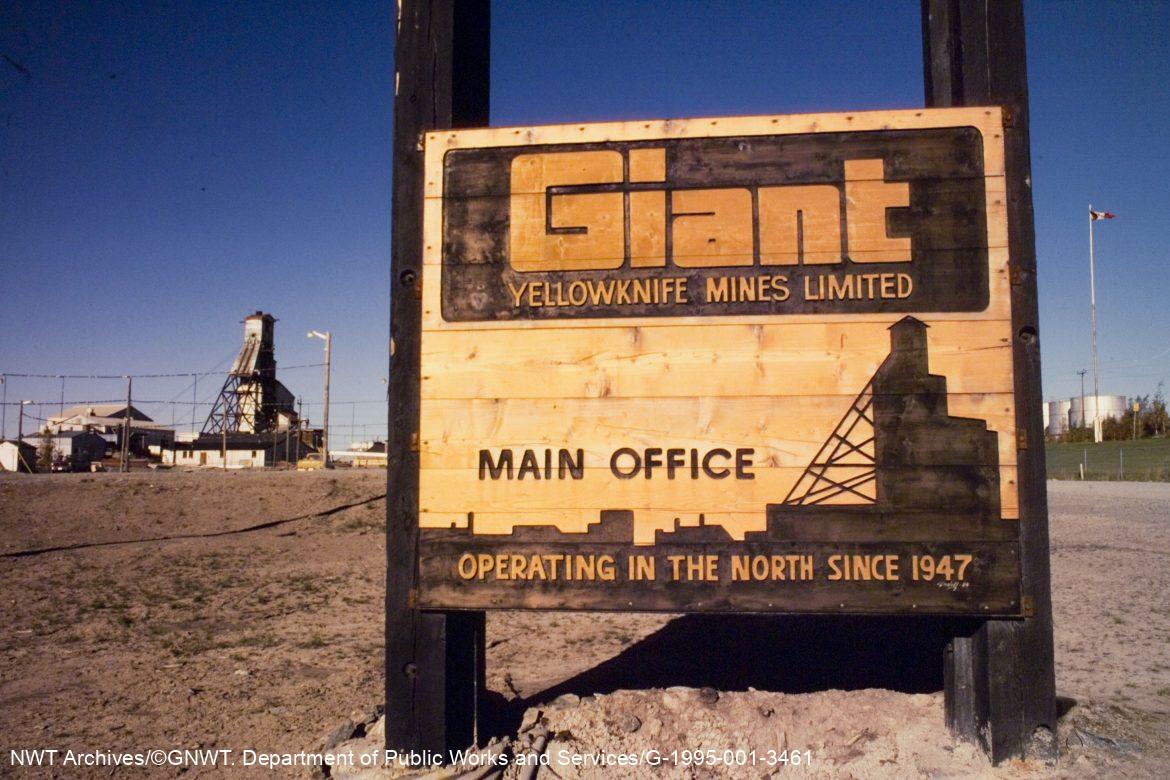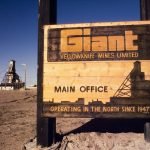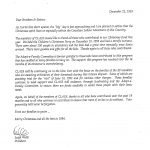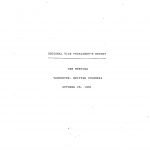1992
Giant Mine Tragedy
On September 18, 1992, an underground explosion at Giant Mine killed nine miners. The tragedy was the result of a miners’ strike that has been called the bloodiest labour dispute in Canadian history. Yellowknifers, many living over mining tunnels, can still remember where they were on September 18, 1992, when the polarized anger and violence of the strike erupted underground. Chris Neill, Joe Pandev, Norm Hourie, David Vodnoski, Shane Riggs. Robert Rowsell, Malcolm Sawler, Arnold Russell, and Vern Fullowka lost their lives.
Giant Mine was an aging gold mine. In 1990 the new owners, Royal Oak Mines, implemented cost-cutting measures to make the mine more efficient during recessionary low gold prices. Rising tensions between management and the unionized employees, represented by the Canadian Association of Smelter and Allied Workers (CASAW), led to significant disagreements during contract negotiations. On May 23, 1992, the miner’s union was officially on strike.
It was apparent from the beginning that the strike would be long and likely turn violent. In an unprecedented move, Royal Oak brought in replacement workers to keep the mine running and hired Pinkerton Security to protect them and mine property from the strikers. Royal Canadian Mounted Police reacted to the rising threat of violence by bringing in extra officers and a riot squad.
The RCMP squad was called into action on June 11 when strikers, police, and guards clashed outside the mine’s main gate. When police finally got the situation under control, they arrested 29 people, charging them with various offences.
On June 30, it became apparent that trespassers were getting underground and leaving threatening notes to workers. The audacity of the vandalism increased as power poles were cut down, pump houses were destroyed by fire, and bombs were set off that significantly damaged mine infrastructure, including the ventilation plant. Violence and vitriol spread into the streets of Yellowknife as nobody in the community was immune from the conflict.
On the morning of September 18, word began to circulate that there had been a major accident. At 8:35 a.m., an unusual explosion was heard and felt deep underground. Miners who investigated found a mangled man-car and the remains of nine men.
Within a few days, it was clear the explosion was not an accident. After a lengthy police investigation, Roger Warren, a disgruntled striker, was charged and eventually convicted of nine counts of second-degree murder. The long and detailed jury trial considered Warren’s confession and then subsequent recantation. The community continued to be polarized between those who believed the first admission of guilt and those who refused to believe Roger Warren was capable of a lone wolf murder of former union brothers and imported non-union miners. In 2003 Warren again confessed, taking responsibility for the day nine men lost their lives. Warren was granted day parole in 2014. He died in 2019 at the age of 75.
The Giant Mine strike ended in December 1993 following the resolution of the criminal investigation and arbitration of all remaining labour contract disagreements. Royal Oak would continue to produce gold in Yellowknife until its bankruptcy in 1999. Still, the mining community never truly recovered from the demoralizing strike of 1992-1993 and the unjust deaths of nine miners.







